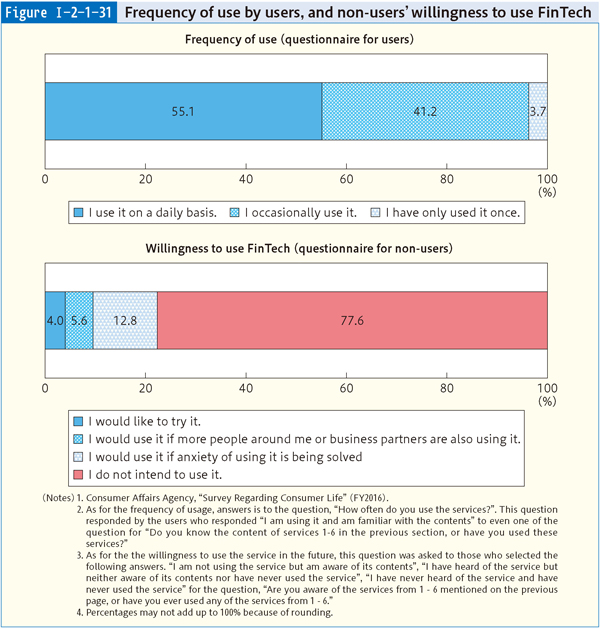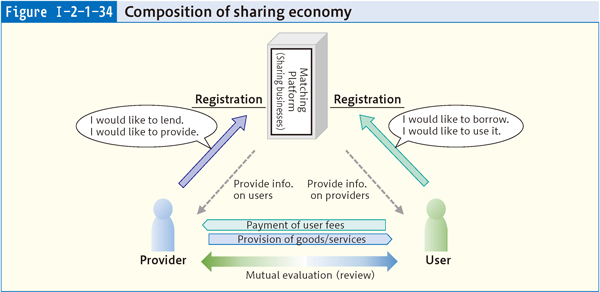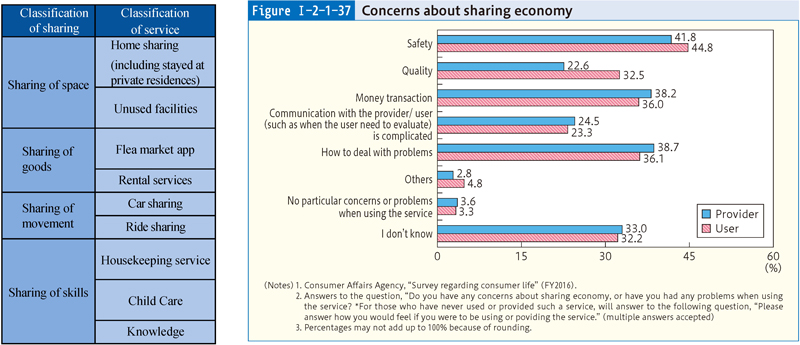Consumer-related socioeconomic situation
Part 1 : Trends in consumer issues and consumers' attitude/behavior
Chapter 2 : Consumer-related socioeconomic situation and consumers' attitude/behavior
Section 1 : Consumer-related socioeconomic situation
Smartphones are becoming popular in all generations.
- Smartphones have become more widespread, and as of the end of 2015, 53.1% owned a smartphone.
- As of the end of 2015, about 90% of people in their 20s or 30s own smartphones.
Even in the 10s: 80% for 13 years & over, an increase of 7.6 points from the previous year. - For people in their 50s and 60s, the year-on-year growth rate is significant, meaning that more and more middle-aged and elderly consumers own smartphones.

FinTech is not well known, but users give it a high rating.
- Nowadays, the trend of providing FinTech (new financial services utilizing IT, such as automatic household accounts book service) is seen all over the world, and in the future it is expected that users will increase in Japan as well.
- 78.3% of respondents said "I do not know" about FinTech.
- Of those who answered, "Yes, I do.", 3.5% answered "mobile payment,"1.4% answered "personal property management," etc. Although these numbers are low, about half of the users responded that they are "using it on a daily basis," and 95.6% said that they felt it was "convenient."
- On the other hand, among non-users, 77.6% said "I do not intend to use it."


Although sharing economy is not well known, there is an interest in the sharing of goods, and most concerns are related to safety, etc.
- Sharing economy means economic activities in which personal property (vacant rooms of one's home, vehicles, etc.) and abilities (skills, knowledge, etc.) are made available to other individuals via an online matching platform (sharing businesses).
- Regarding domestic sharing economy, 88.4% responded "I don't know about it."
- Regarding future use, "goods" service was the highest, yet, the percentage remains low.
- Regarding concerns about the sharing economy, "safety," "money transactions," and "how to deal with problems" were concerns of both providers and users which was as high as 40%.




